Sarah Bradbury has been armed with a mandate to help the industry change. So how does the IGD’s ambitious and driven new CEO plan to go about it?
Sarah Bradbury is on a mission. The IGD’s new CEO wants “to achieve greater social impact and to be an essential partner to a thriving food and consumer goods industry.” And since joining five months ago, the former Tesco group quality director has been pursuing these goals with her usual gusto.
Next week the IGD will present to Defra a report outlining its recommendations for a harmonised approach to eco-labelling to help cut through the confusion of the multiple schemes currently available. It’s got Bradbury’s name all over it. In her capacity as co-chair of IGD’s Technical Leadership team, she spearheaded its development while working at Tesco, in a process that took two years and involved over 400 conversations, in an attempt to align the industry.
And more recently she chose to delay its publication by a few weeks, amid pockets of disquiet over the IGD’s approach, to make sure she understood the proposed approach, and personally waded through over 250 pages of questions from stakeholders and ensured that feedback was provided to all.
It’s that combination of conviction and conscientiousness that makes Bradbury such an important and clever appointment for the IGD. Because, whether it’s environmental labelling, or measurement of CO2 or food waste, or HFSS regulation, or any of the other numerous challenges facing the industry, driving change and reaching consensus requires complex stakeholder management and government interaction – qualities Bradbury has in spades. And, armed with a mandate from the industry to bring about change and unite the industry, she’s ideally positioned to make the difference she craves.
Name: Sarah Bradbury
Role: CEO, IGD
Age: 49
Status: Married with two children, aged 14 and 11
Potted CV: Harrods, M&S, Aldi and Tesco
Education: Business degree, Cardiff
Hobbies/pastimes: Family, holidays, fitness and food
Book I’m reading: Ultra Processed People by Dr Chris van Tulleken
Luxury item: Peloton bike
Desert island dinner: Cheese and biscuits. Ideally stilton
Business hero: Dave Lewis
Best advice: ‘Do the right thing’
Filling gaps
Of course there are “gaps” in Bradbury’s knowledge, most notably on “the brand side and manufacturing side and also the financial insight and consulting side”, which she’s still getting to grips with. But in trying to define the role the IGD can play, she’s been reassured by the “open door” offered by “CEOs from all of the retailers and suppliers, encouraging me and telling me what they think has been good and bad, and what they would like us to do going forward”.
So what’s the plan? With its social impact charter the IGD is unique among the trade’s membership organisations in straddling all sides of the food and drink industry. But to the frustration of many its charitable status has prevented it from lobbying.
Nonetheless, “there is an opportunity to have a louder voice”, says Bradbury. “Many people have asked can you lobby, and will you lobby. For me the history of the IGD is around science and evidence and that’s what I want us still to be. But does that mean we can’t have a point of view? No. As long as it’s an independent point of view, for society benefit, that’s absolutely fine.
“But I prefer not to think about the word lobbying. I prefer to think about what do we as a food industry do. The food industry needs to change for the future. So we can work uniquely with all the perspectives, but also have that independent perspective, led by the science and the evidence. And then we can share it with whoever we would like to share it with.”
At the same time Bradbury is keen to avoid duplication of effort. On the packaging side, for example, that means partnering with Wrap. “Our two workstreams are 90% the same. So we’ll finish what we’re doing and then work with them going forward and bridge the gap between their role and their knowledge of the technical detail and how they talk to industry.
“There is definitely an opportunity to bring together a lot of the streams of work to really align people’s thinking. Because no-one is moving fast enough. Having been fortunate enough to look at sustainability in my old role, once you learn about what happens if you don’t change the system, and know the big part you’ve got to play, it’s irresponsible not to try and make a difference.”
The IGD is also working more closely with FareShare. “The work [CEO] George [Wright] and FareShare are doing around the the supply chain is really exciting. I know George [Wright] from Tesco. We’re both enthusiastic about making a difference. It’s easier said than done of course. And it’s going to be a big challenge as to how everyone can support that but I’m really energised that we can help people on that journey to think about how it can be used for good.”
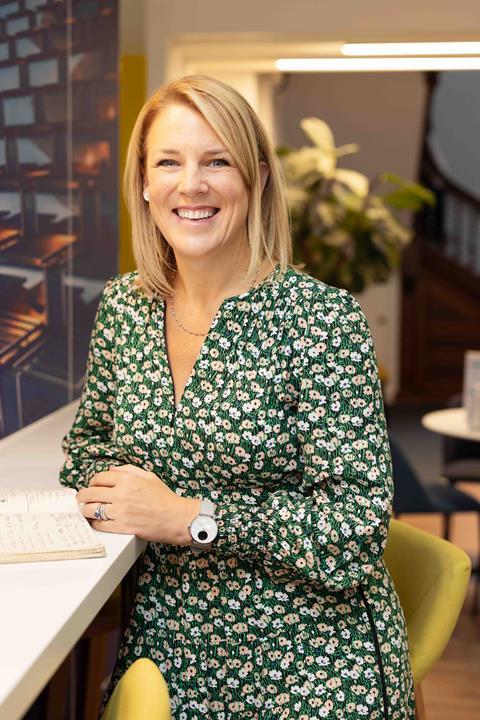
‘Uber convenor’
Above all Bradbury wants the IGD to make it simpler and easier for the industry to work together. “If you’re running a business you are having to speak to so many organisations to work out how to do it. So I see a future role of the IGD to be this uber convenor that can bring together organisations, recognising people’s roles and the work they’ve done to support this, to help have a whole industry perspective. There is a divide currently where industry and government [often] want the same thing; it’s the how that’s sometimes different at the end. The way we set ourselves up vertically vs horizontally as an industry sometimes doesn’t bring all the perspectives to be helpful enough for government.”
Many of the changes Bradbury envisions to its social charter are subtle tweaks. On the economics side Bradbury is at the start of a conversation about how to incorporate the role the food system plays into the IGD’s modelling work. It’s also extending its remit into resilience, “to do what we do best, which is collating information and bringing it together. We think we can play that role quite nicely.
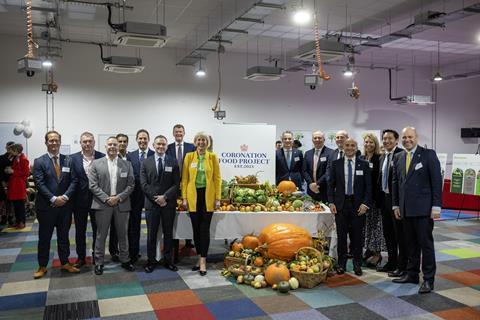
She also wants to grow the IGD’s work on the employability side and “really think about how can we create the army of the food industry people that we need.”
The other important area of development is in terms of the IGD’s response to the obesity crisis. Bradbury’s first move here was to commission research from Leeds University on the impact of the HFSS legislation “because no-one else was doing it,” and there’s now a waiting game as it won’t be ready till the second half of 2024, but “going forward the IGD will need to take a view from a policy perspective”.
Some have dismissed the HFSS regulation after it was watered down, but as part of the implementation team at Tesco at the time she can vouch that “it took a lot of people a lot of money to implement and we can’t underestimate the amount of reformulation that took place. Shops were moved around and more products are being sold that are slightly better for you than they were for you. But with the research we’ll have the actual facts.”
“We have to think about the whole food system. And how we start from an education perspective and helping people think about food differently. That’s not part of our current IGD plan but coming out of the 12 month review of HFSS we do hope to then be building and working with others around what policy intervention can take place to support government.”
While awaiting the results Bradbury has been reading Ultra Processed People, the best-selling book on ultra-processed food (UPF) by Dr Chris Van Tulleken. While she’s still only half way through, she feels like it “jumps to some quite big conclusions” and more broadly has concerns over the term UPF as it “lumps things together”.
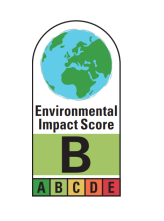
“There’s not enough evidence around some of the claims on the table [for UPF]. When you unpack it, you will find out there are some foods that are worse than we thought, but we’ve not found out yet. I don’t think it’s proven. So we will be monitoring emerging evidence on the impact of UPFs. In the meantime, we need to consider carefully how we communicate with consumers, recognising their challenges in understanding the topic and the risks of causing greater confusion.”
Can the IGD be trusted?
The IGD’S use of science and evidence could be seen as a blocker. That’s certainly what lobbying trade associations the world over have done to counter legislation. But while being a partner to the industry, “what makes us different from other membership organisations is we are independent. Our charitable status means everything I say has to be for the good of society rather than the good of the industry.
“That’s where our trusted partnership develops to another level, where we aren’t swayed by what’s good for retail or suppliers or farmers. We have to do what’s good for society. So we’re not afraid to tell an unpalatable truth. And we know it will have repercussions. But we’ll try and do it in a way that is helpful, to make a difference rather than sharing the problem.”
The same challenge applies to the new eco-labelling scheme. Inevitably it’s going to upset some people and impact some organisations more than others, she admits. But you have to do the right thing, she says.
“Some people get very upset. If you’re in red meat it’s going to be a difficult label on your product but there are ways of improving it. And that’s critically important. There are two streams of improvement. We’ve seen this for years with GDAs [Guideline Daily Amounts]. If you’ve got a red product, you do what you can to get it to amber or to green.
“And it’s an important consideration for the environment as well. Which is: does it encourage you to change upstream? If you can have that situation on environmental labelling, the little changes can make a big difference. As we know consumers don’t always look at it, but people that care will look at it. It doesn’t mean no-one will ever eat meat ever again, we know it’s critically important from a nutritional perspective, but you don’t have to eat it all of the time.”
Having this independence, while also being a partner to the industry, is going to be crucial to earn the trust of the government, Bradbury stresses.
And the other thing she’s going to need is more money. “I’m very ambitious to achieve greater social impact. But I can see that if we become this uber-convenor, the asks are going to keep coming.”
To fund that Bradbury is also reviewing the commercial arm of the IGD. “We need to grow the financial side to fund the charity side. The good news is financially we’re doing well. On the retail analysis and Shopper Vista side, it’s in 72 countries and we have 2,500 subscribers. And we’ve built a good consultancy business. But is there an opportunity in training? Where are the opportunities that sit naturally with our strengths and our mission? We’re working through it via a traditional swot analysis.
“I just have a lot of ambition for the opportunity of the IGD and feel I can make a massive difference. It’s an amazing industry and I’m exceptionally fortunate and privileged, the warm welcome I’ve received and aspiration for the IGD to do more, and am really enjoying it, but I know we will need more people and more support in the long run.”







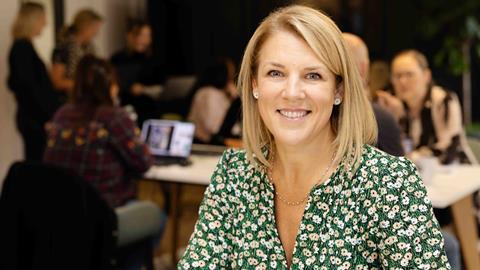
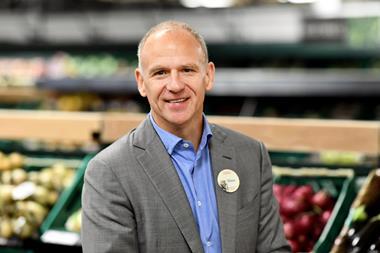






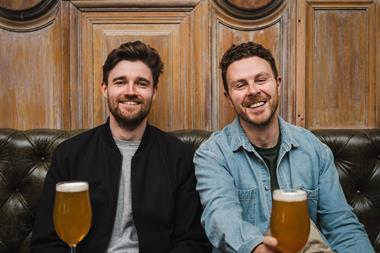
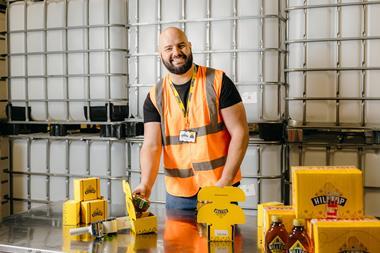
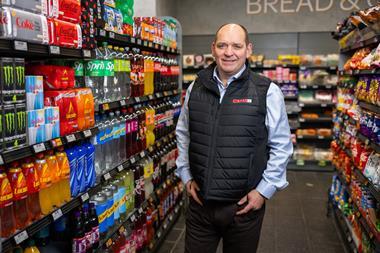
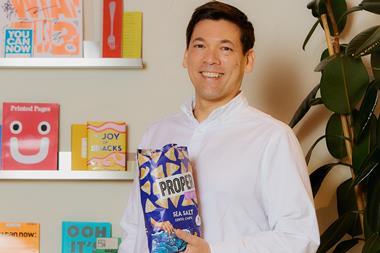
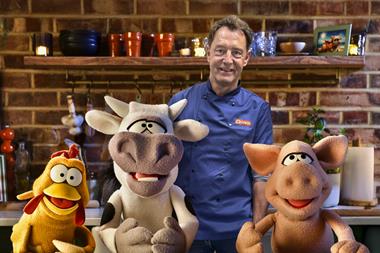
No comments yet